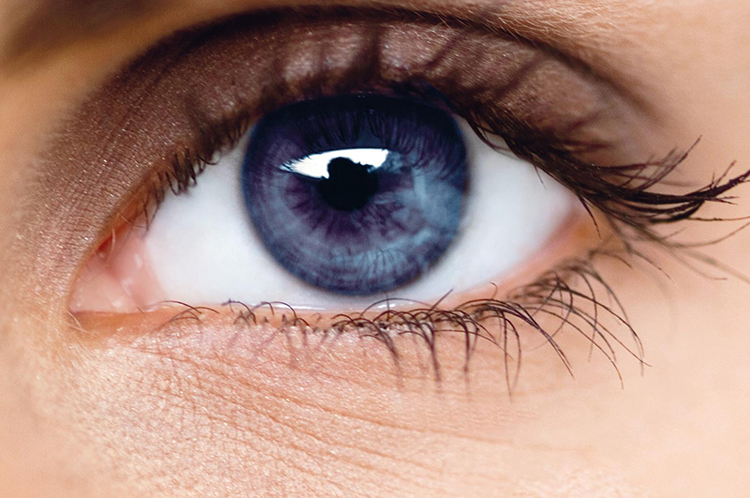In today’s digital world, our eyes face more strain than ever before. From smartphone screens to computer monitors to environmental factors, our vision is constantly challenged. The good news is that incorporating a few simple practices into your daily routine can significantly improve your eye health and comfort. Here are five essential habits that can help protect your vision and keep your eyes feeling their best.
1. Practice the 20-20-20 Rule for Digital Eye Strain
Digital eye strain has become increasingly common as we spend more time looking at screens. To combat this issue, eye care professionals recommend following the 20-20-20 rule:
- Every 20 minutes of screen time
- Take a 20-second break
- Look at something at least 20 feet away
This simple practice helps reduce eye fatigue by giving your focusing muscles a chance to relax. It’s particularly important if you work at a computer for extended periods. Consider setting a timer as a reminder or using one of the many apps designed specifically for this purpose.
Additional screen tips:
- Position your screen so it’s about arm’s length away and slightly below eye level
- Adjust brightness settings to match your surroundings
- Use blue light filters, especially in the evening hours
- Increase text size when needed for comfortable reading
2. Nourish Your Eyes with Eye-Healthy Foods
What you eat directly impacts your eye health. Certain nutrients are particularly beneficial for maintaining good vision and preventing age-related eye conditions.
Focus on incorporating these eye-supporting nutrients into your diet:
Omega-3 Fatty Acids
- Found in: Fatty fish (salmon, tuna, mackerel), flaxseeds, walnuts, chia seeds
- Benefits: Supports tear production and reduces dry eye symptoms
Vitamin A and Beta-Carotene
- Found in: Orange vegetables (carrots, sweet potatoes), dark leafy greens, eggs
- Benefits: Essential for night vision and maintaining the eye’s surface
Vitamin C and E
- Found in: Citrus fruits, berries, nuts, seeds, avocados
- Benefits: Antioxidants that help protect against oxidative damage
Lutein and Zeaxanthin
- Found in: Dark leafy greens (spinach, kale), yellow and orange peppers, egg yolks
- Benefits: Filter harmful blue light and protect the macula
Zinc
- Found in: Oysters, beef, pumpkin seeds, lentils
- Benefits: Helps vitamin A reach the retina to produce melanin, which protects the eye
Rather than focusing on supplements, aim to eat a rainbow of fresh fruits and vegetables daily to get these nutrients naturally.
3. Stay Properly Hydrated Throughout the Day
Adequate hydration is essential for your overall health and plays a critical role in maintaining eye comfort. Your eyes need moisture to function properly and stay comfortable.
When you’re dehydrated:
- Your eyes may feel dry, gritty, or irritated
- Tear production can decrease, leading to dry eye symptoms
- Vision clarity may be affected
Aim to drink at least 8-10 glasses of water daily, more if you’re active or in hot environments. Remember that caffeinated beverages and alcohol can contribute to dehydration, so balance these with extra water intake.
Beyond drinking water, you can support eye hydration by:
- Using a humidifier in dry environments
- Taking regular blinking breaks (we blink less frequently when using screens)
- Avoiding direct air from fans, air conditioners, or heaters blowing toward your eyes
4. Protect Your Eyes from UV and Blue Light
Your eyes are vulnerable to damage from ultraviolet (UV) rays and high-energy visible (HEV) blue light. Making protection a daily habit can prevent long-term damage.
UV Protection:
- Wear sunglasses that block 99-100% of UVA and UVB rays whenever you’re outside, even on cloudy days
- Choose wrap-around styles for maximum protection
- Consider polarized lenses to reduce glare, especially when driving or near water
- Wear a wide-brimmed hat for additional protection
Blue Light Management:
- Use blue light filtering glasses when using digital devices for extended periods
- Enable night mode or blue light filters on devices, especially in the evening
- Follow the 20-20-20 rule to give your eyes breaks from blue light exposure
- Try to avoid screens in the hour before bedtime to support healthy sleep patterns
Remember that children’s eyes are particularly sensitive to UV damage, so start protective habits early.
5. Prioritize Quality Sleep for Eye Recovery
Sleep is your body’s time for restoration and repair—including your eyes. During sleep, your eyes clear out irritants and replenish moisture, while tissues throughout your visual system recover from daily strain.
Insufficient sleep can lead to:
- Eye strain and fatigue
- Dry, irritated eyes
- Twitching or spasms in the eyelid (myokymia)
- Increased sensitivity to light
- Blurred or double vision
- Dark circles and puffiness around the eyes
To support eye health through better sleep:
- Aim for 7-9 hours of quality sleep each night
- Establish a consistent sleep schedule
- Create a dark, comfortable sleeping environment
- Reduce screen time before bed to minimize blue light exposure
- Use lubricating eye drops before bed if you experience dry eyes
Bonus Habit: Schedule Regular Eye Exams
While not a daily habit, regular comprehensive eye exams are essential for maintaining eye health. Many serious eye conditions develop without noticeable symptoms in their early stages. Professional eye exams can detect these issues when they’re most treatable.
Even if you have perfect vision, adults should have a comprehensive eye exam:
- Every 2 years in your 20s and 30s
- Every 1-2 years in your 40s and 50s
- Annually after age 60
If you have existing eye conditions, a family history of eye disease, or wear corrective lenses, your eye care professional may recommend more frequent exams.
Conclusion
Your vision is one of your most precious senses, and these five daily habits can help preserve it for years to come. Remember that consistency is key—small actions, when done regularly, can have a significant impact on your long-term eye health.
By practicing the 20-20-20 rule, eating eye-healthy foods, staying hydrated, protecting your eyes from harmful light, and prioritizing quality sleep, you’re giving your eyes the care they deserve. Your future self will thank you for the clear, comfortable vision that results from these simple habits.
This article is for informational purposes only and does not constitute medical advice. Always consult with a qualified eye care professional for personalized recommendations regarding your eye health.



Leave a Reply